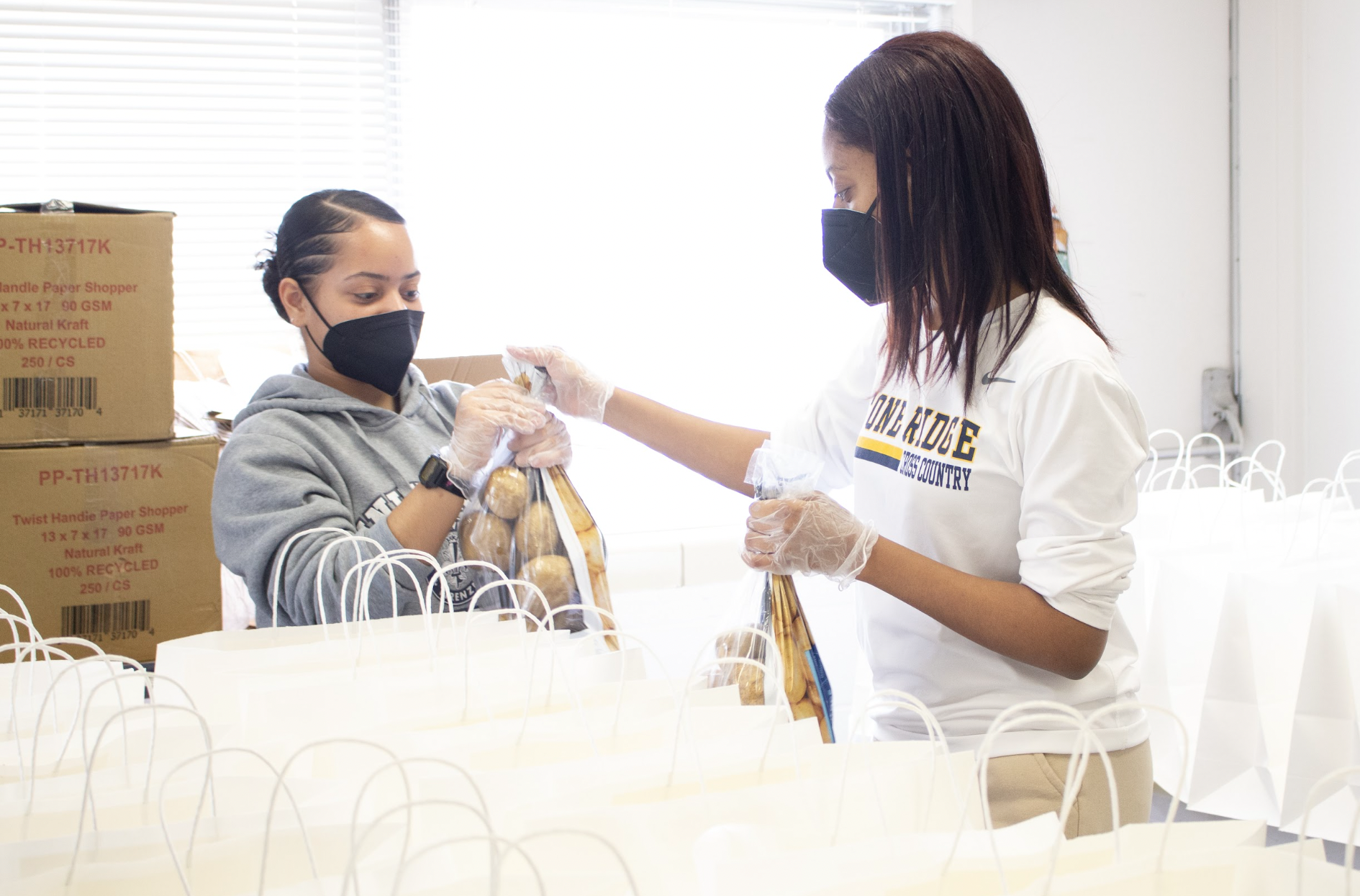 |
For ten to twelve days throughout the school year, we suspend Upper School classes. We work across the DMV with our partners engaged in various service opportunities, educating ourselves to the needs of the world and how we can respond to those needs.
- Living the Goals and Criteria of Sacred Heart education.
- Catholic Social Teaching is in direct alignment with our vision as a school.
- Many of the guiding principles, in addition to the Goals and Criteria, that shape this program come from two documents: the general chapter calls of Religious of the Sacred Heart, and the Sacred Heart Justice, Peace and Integrity of Creation document that calls us to be Artisans for Hope in a blessed and broken world. These are two very essential documents where people are called to go to the margins and live more humanely in the radical way of Jesus at Nazareth. These are the most radical teachings that the Church has.
- Social justice is how we show up for others in the world.
The program is intentionally designed for student growth. They grow in their intellect and their understanding in their own education here, they grow to understand the systems that are in place that keep injustices alive.
There are two operative words within the Criteria of Goal III: to educate and act. We are charged with educating to a social awareness, and service happens through this—you can’t act unless you know what the needs are. Within education is the reflective component where students can open themselves for transformation within. In the words of Fr. Greg Boyle, SJ, “the measure of compassion is not in our service to those on the margins, but in our ability to see our kinship with them.” Service in this way means recognizing that we go to the margins not to transform, but to be transformed.
Beginning the Day
On Social Action days, we begin by gathering as a division in the theater for assembly. The program most often reflects the framing for the day and educates students on various subjects like poverty and homelessness, environmental justice, and education. Speakers include members of the RSCJ, Stone Ridge alumnae, and community partners doing critical social justice work, as well as current students and faculty. Our speakers demonstrate how one can truly embody Goal III through a lifelong commitment to service and consistent work to eradicate systems of oppression. Within these presentations, we reiterate our “why” for the day with the tenets of Catholic Social Teaching and our essential question: “How is my well-being bound up with yours?”
